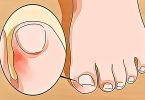A lot of people over the age of 50 are living out the happiest some years of their life. With that said, you’re familiar with how it feels to get older — and you know by now that those daily creaks, aches, and pains are probably here to stay.
You must keep in mind, however, that just because you may not be as agile as you once were doesn’t mean every slight problem you’re experiencing is normal. Your whole body may be sending you warning signs that disease — or even death — is in your near future. Here are the signs you must never ignore, especially if you’re older than 50.
15. Your vision is increasingly worse
What it could be: Too much aspirin
Many over 50 use aspirin to prevent heart disease. And if you’re in this camp, you should know how it can potentially affect your vision.
WebMD explains aspirin may be linked to macular degeneration, the leading cause of blindness in older adults.
Doctors warn not to stop taking your aspirin if this scares you, however.
Many take low-dose aspirin for long periods of time and it never results in blindness — but you should also be aware that other factors, such as genetics, smoking, high blood pressure, and age, can increase your risk as well.
14. Your handwriting gets smaller
What it could be: Parkinson’s disease
Have you analyzed your handwriting recently? Healthline explains Parkinson’s disease affects around 500,000 people in the U.S. each year, and it’s a movement disorder first starting in your brain. When neurons in the brain start to die, that’s when Parkinson’s sets in — and you may notice some strange signs and symptoms, like shrinking handwriting.
The next time you’re writing something down, take a look. Many people with Parkinson’s in the early stages will notice they start out writing normally and their handwriting gets smaller as they continue.
13. You’re losing weight unexpectedly
What it could be: Cancer
Your metabolism slows as you get older, making weight loss more difficult than it was in your 20s. If you start losing a rapid amount of weight unexpectedly when you’re over 50, you’ll want to ask your doctor for possible causes.
In one of the more extreme scenarios, it could be cancer.
The American Cancer Society notes weight loss can be an early sign you have cancer, especially if the loss is 10 pounds or more.
This is a more likely symptom of cancers that affect the pancreas, stomach, esophagus, or lungs.
12. You’re sick with the common cold all the time
What it could be: Not enough good bacteria in your gut
You can blame a consistent cold on being around other sick folks. However, if you feel as you have a cold more often than you don’t, it could be a sign you don’t have enough good gut flora.
Care2 reports how effectively your immune system is working is determined largely by your gut. When you have an imbalance going on, it means your body can’t protect itself, resulting in sickness.
And, if you’ve been on antibiotics a lot recently, this can also cause a serious gut imbalance, resulting in more colds.
11. You suddenly start snoring
What it could be: Heart disease
It seems harmless, but snoring can actually indicate you’re going to have major heart problems in the near future. Science Every day explains research from Henry Ford Medical center in Detroit found snoring may put you at a greater risk for thickening or abnormalities in the arteries than having excess fat or high cholesterol levels.
No matter if you’ve just started snoring or you’ve been a long-time snorer, you must seek treatment. Snoring can cause sleep apnea, which has long been linked to cardiovascular system disease — the No. 1 killer in the U.S.
10. You’re nauseous after eating fatty foods
What it could be: Gallstones or gallbladder disease
You probably know someone who’s had their gallbladder removed — and they may have experienced this symptom, too.
Livestrong.com notes over 25 million Americans develop gallstones over time, which are from bile that hardens into stones in your gallbladder.
And you may notice nausea, pain, or vomiting following a fatty meal if you have issues with your gallbladder.
If your doctor finds gallbladder disease is the problem, it’s more than likely they’ll recommend a diet low in cholesterol as well as trans and saturated fats.
Click On “Next” button to Continue Reading



Leave a Comment